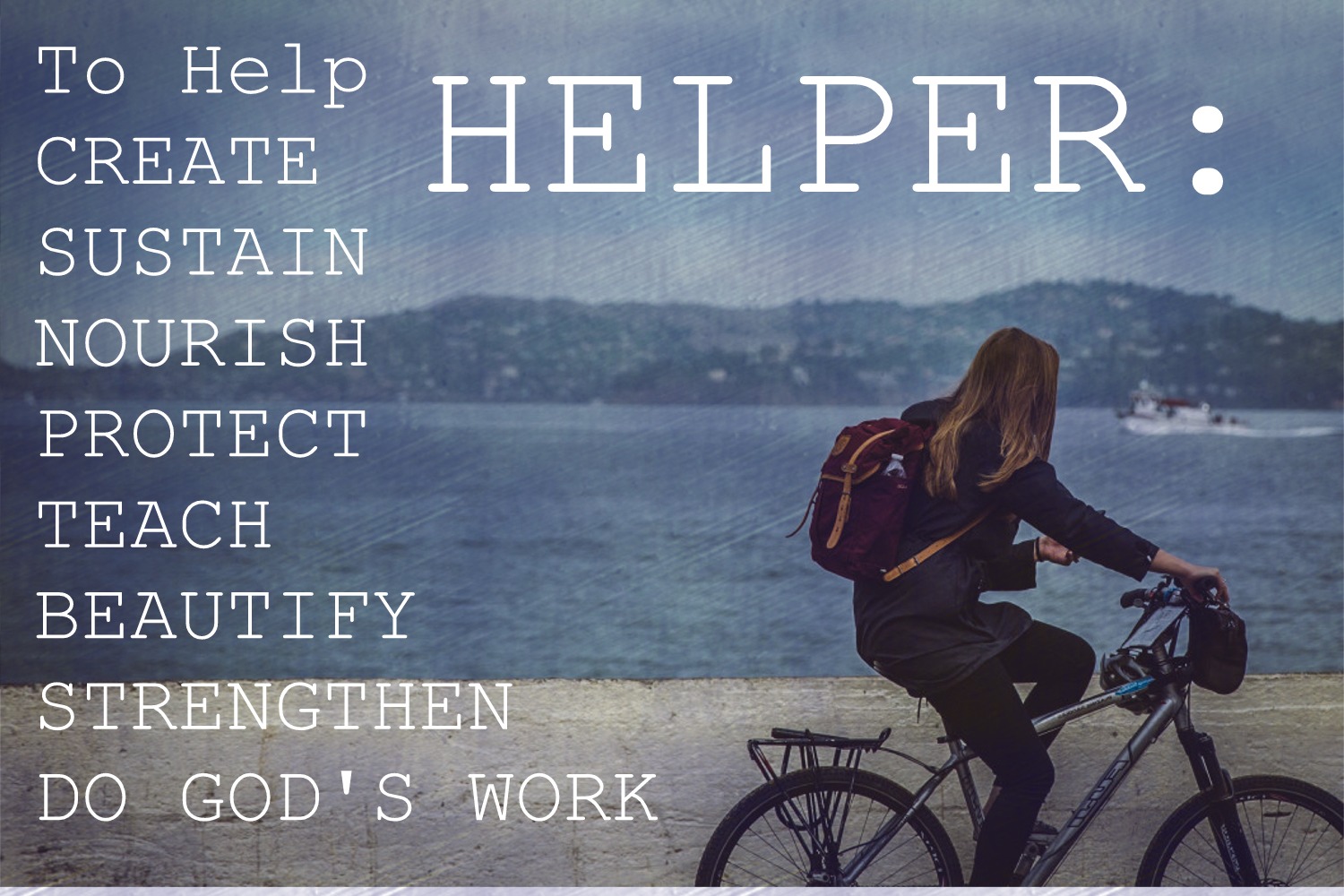The first 10 verses of Judges chapter 6 are probably ones that most readers will spend little time  considering. The average reader of Judges (and their aren’t too many) would rather skip ahead to verse 11 for the “action” of Gideon and his “300” begins to unfold. A careful reading of Judges 6 makes these first verses feel somewhat parenthetical, almost like a speed bump in thought before entering the main thoroughfare. There are no accidental anecdotes in God’s Word; every word is carefully and intentionally breathed out by God to declare His glory and build our faith. These 10 verses are intended to slow us down so that we don’t lose sight of God’s point for the larger story, of which Judges is simply one chapter in.
considering. The average reader of Judges (and their aren’t too many) would rather skip ahead to verse 11 for the “action” of Gideon and his “300” begins to unfold. A careful reading of Judges 6 makes these first verses feel somewhat parenthetical, almost like a speed bump in thought before entering the main thoroughfare. There are no accidental anecdotes in God’s Word; every word is carefully and intentionally breathed out by God to declare His glory and build our faith. These 10 verses are intended to slow us down so that we don’t lose sight of God’s point for the larger story, of which Judges is simply one chapter in.
Why does God want to slow us down here? What does he want us to see? In a word, GRACE. Israel, the people of God, had rejected God’s grace–all that He had faithful done for an unfaithful people. They had taken all that He blessed them with for granted. He had led them out of Egypt, freed them from slavery, crushed all their enemies, blessed them with land they did not work for, and promised to be their God. Though God had poured out blessing, inexplicably, they had walked away and worshipped other gods (which were not gods at all). If nothing else, the book of Judges reveals God to be perfectly gracious as he tolerates his children’s rebellion again and again and again. Every time they cry, he saves them, even though their refusal to give up their sin is to blame for their problems in the first place.
The narrative of Judges is cyclical and now we see God taking a moment–pressing the pause button–to remind them exactly what is going on. As I wrote in my sermon:
But God breaks the cycle. He doesn’t raise up a deliverer to save them from their enemies. Instead, God sends them a prophet to scold them. An unfaithful Israel asks for relief from what they see as the problem, and a faithful God answers by addressing the real issue. Their life was not in chaos because of the Midianite mob. Their life was in chaos because their relationship with God was broken. And their relationship with God was broken because they had refused to give up their sin. More often than not, God is more interested in our understanding than he is in our relief (R.Davis).
In truth, Israel approached God to get his benefits, but not to get Him. Hungry, poor, tired, and living like cavemen, they cried to God to change their circumstances, not to give them faith in them. That is the difference between a Christian and a Non-Christian. There are only two ways of living–one that is governed by the changing character of circumstances, or one that is governed by the unchanging character of God. Anyone can have a tongue that confesses some sort of belief Jesus–but not everyone will have a life that confesses Jesus as Lord.
I’ll close this post with the same way I closed my sermon (you should listen to it). I believe these two ways of living are represented quite well by Psalm 23. Below, I will write out the two perspectives using this Psalm. Obviously, one represents those who live with an eternal perspective, and the other those who who cannot see beyond their momentary affliction. One represents those who cry out to God for God, and the other those who cry out to God for relief only. One is faithful, and one is faithless. Which one sounds like you?
Psalm 23
The LORD is my shepherd; I shall not want.
The LORD is not my shepherd, shall I want…
He makes me lie down in green pastures.
I can never rest. Life is like a desert, I am hot, thirsty, and unsatisfied/
He leads me beside still waters.
My life feels like a storm without with power but not purpose.
He restores my soul.
My soul feels broken and life meaningless.
He leads me in paths of righteousness for his name’s sake.
I have no one to help me discern right from wrong–so I live for myself. I am self-sufficient, self-reliant, self-admiring, self-centered, self-motivated, and self-absorbed
Even though I walk through the valley of the shadow of death, I will fear no evil, for you are with me;
your rod and your staff, they comfort me.
I fear dying. I fear bad things happening to me. Mostly, I fear being alone in these things.
You prepare a table before me in the presence of my enemies; you anoint my head with oil; my cup overflows.
I have no one to protect me from my enemies. I have no one to love me. I have no one to fill me up. I feel insecure, I feel unloved, I feel empty.
Surely goodness and mercy shall follow me all the days of my life, and I shall dwell in the house of the LORD forever.
Life feels hard and failure seems to follow me. The only thing I can count on is that I will die, but I have no real hope after that.




